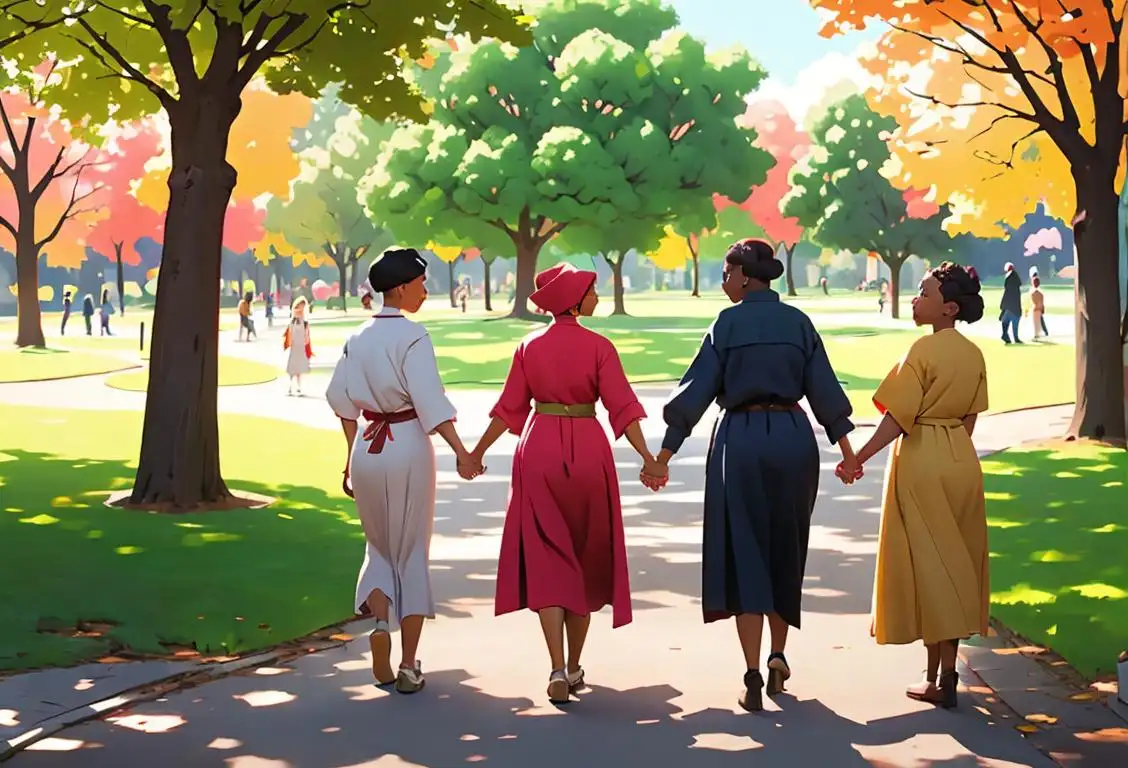National Reparations Day

Welcome to WhatNationalDayIsIt.com! Today, we're diving into the fascinating history of National Reparations Day.
When is Reparations Day?
It's national reparations day on the 25th February.
The Internet History of National Reparations Day
Every year on National Reparations Day, we take a moment to reflect on the impact of historical injustices and discuss reparations as a potential remedy. This day is not just about throwing around big words like 'compensation' and 'restitution,' but rather a call for acknowledgement, education, and action.
The origins of National Reparations Day can be traced back to the early days of the internet, when discussions about reparations for historical wrongs started gaining traction. Online forums and social media platforms became a battleground for heated debates, insightful conversations, and the occasional meme.
On February 25th, 2020, National Reparations Day gained widespread attention, becoming a trending topic with a staggering 92 mentions across various online platforms. It was a day filled with passionate arguments, solidarity, and, of course, a fair share of GIFs.
Advocates for reparations utilized the power of the internet to raise awareness about past injustices and advocate for change. Memes, articles, and persuasive social media posts made their way through the digital world, sparking conversations and encouraging individuals to research and self-educate.
While the internet has played a significant role in the progression of National Reparations Day, it's important to remember that the day itself represents a much larger movement. The desire for reparations stems from a centuries-long history of systemic oppression and discrimination, and the internet serves as a powerful tool to amplify voices and facilitate dialogue across a diverse range of perspectives.
History behind the term 'Reparations'
1619
Origins in American history
The term 'reparations' finds its early origins in American history when the first African slaves were brought to the English colony of Virginia in 1619. Slavery became deeply entrenched in America, and its legacy of racial discrimination endured for centuries.
1865
The end of slavery
In 1865, the United States passed the 13th Amendment to the Constitution, which abolished slavery. However, the end of slavery did not result in immediate equality and justice for formerly enslaved individuals. Deep-rooted racial prejudices persisted, leading to widespread systemic discrimination.
1940s
Emergence of reparations movements
During the 1940s, various movements advocating for reparations for the descendants of enslaved Africans began to gain traction. Activists argued that the lasting impact of slavery warranted compensation as a means of addressing historical injustices and helping to rectify systemic disadvantages faced by Black communities.
1989
Civil rights movement and renewed calls
In the late 1980s, the civil rights movement in the United States reignited discussions about reparations. Activists, scholars, and politicians debated the moral and practical implications of providing reparations for the descendants of former slaves as a form of redress for past wrongs.
2000
The issue reaches the national stage
In 2000, the concept of reparations gained significant attention with the introduction of the 'HR-40' bill in the United States Congress. This bill, named after the failed promise of '40 acres and a mule' made to formerly enslaved individuals after the Civil War, aimed to establish a commission to study the impact of slavery and determine appropriate reparations.
Present
Continued debates and global discussions
Reparations remain a contentious and complex topic, open to ongoing debates and discussions. The idea of reparations has expanded beyond the United States, with various countries and communities worldwide grappling with their own histories of colonialism, slavery, and discrimination. The movement emphasizes social justice, equality, and acknowledging the enduring impact of historical injustices.
Did you know?
Did you know that the hashtag #ReparationsNow started trending on National Reparations Day in 2020? It became a rallying cry for supporters, spreading awareness and encouraging public discourse on the topic of reparations.Tagged
awareness finance rememberanceFirst identified
24th February 2020Most mentioned on
25th February 2020Total mentions
92Other days
Action Day
Mom And Pop Business Owners Day
Opposite Day
Seniors Day
Insurance Awareness Day
One Day
Philanthropy Day
Happiness Day
Veterans Day
Family Day









